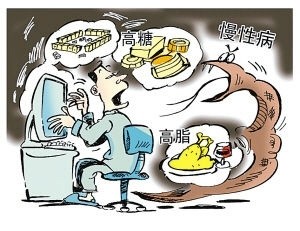
中国的饮食文化英语作文 中国饮食文化论文2000字
作者:中华健康网 时间:2023-05-31 13:15 阅读:7191
Chinese Cuisine Culture: A 1500-word Overview
IntroductionChinese cuisine is an integral part of Chinese culture. It is remarkable how this cuisine has remained unaltered and unshaken by the influence of foreign cuisines. This can only mean one thing; the Chinese are deeply rooted in their food traditions and have a rich history of culinary art that dates back several centuries. This article provides a comprehensive overview of Chinese cuisine culture, highlighting its distinctive features, its historical evolution, and its impact on the world.
Distinctive Features of Chinese CuisineSeveral unique features distinguish Chinese cuisine. For starters, it emphasizes fresh ingredients and simplicity. The Chinese believe that fresh food imparts more flavor and nutrition than preserved food. Chinese chefs prefer to keep the ingredients as natural as possible, avoiding overly complicated techniques, pretentious presentation, or excessive spicing. Secondly, Chinese cuisine is regionally diverse. With over 56 ethnic groups and between 8 to 10 principal culinary regions, it is no wonder that each province in China boasts of a unique flavor and cooking style. Evidently, Sichuan cuisine is known for its spiciness, Shandong for its seafood, Guangdong for its roasted meats, and Hunan for its smoked and cured meats. Thirdly, Chinese cuisine has an undying reverence for balance and harmony. It considers the interplay of hot and cold, sour and sweet, crunchy and soft, as essential elements that make a well-rounded meal. The Chinese believe that the perfect balance of flavors leads to optimal digestion, promoting overall health and wellness.
Historical Evolution of Chinese CuisineChinese cuisine has an extensive history that spans millennia. The invasions and conquests of different dynasties and the integration of foreign cultures have had an immense impact on Chinese cuisine. For instance, during the Tang Dynasty (618-907), Chinese cuisine underwent colossal transformations where meat-based dishes gained popularity. In contrast, vegetarian dishes declined in popularity due to the influence of Buddhism. Later on, during the Song dynasty (960-1279), boiled meats and stir-fried dishes were introduced, and fine dining became the norm. During the Ming Dynasty (1368-1644), the techniques of pickling and smoking meats and vegetables were introduced, paving the way for the development of modern-day Cantonese cuisine. The Qing dynasty (1636-1912) saw increased interactions with European powers, resulting in the integration of foreign ingredients such as potatoes, corn, tomatoes, and chili peppers in Chinese cuisine. This blending of cultures led to the emergence of a new cuisine, Sino-Western cuisine, which combined Western cooking techniques with traditional Chinese ingredients.
Impact of Chinese Cuisine on the WorldChinese cuisine has had an unparalleled and lasting impact on the world. Its influence has been felt in the cuisines of East and Southeast Asia and has gradually spread to other parts of the world. Interestingly, Chinese cuisine is undoubtedly the most popular foreign cuisine worldwide. Chinese takeout is a staple food for many people globally. Besides, the Chinese culinary art of dim sum, which refers to small portions of Chinese cuisine served in bamboo steam baskets, has become a popular breakfast or brunch dish across many parts of the world. The art of tea drinking, which is an integral part of Chinese cuisine culture, has also gained worldwide acclaim, with tea houses and tea shops being common in many countries.
ConclusionIn conclusion, Chinese cuisine culture has a unique place in the world of cuisine. It is a timeless cuisine that has defied the test of time and remained a cornerstone in Chinese culture. The cuisine's distinct features, historical evolution, and impact on the world cannot be understated. Its popularity and universal appeal can only attest to the culinary art's excellence, the creativity of Chinese chefs, and the ingeniousness of the people who developed this tradition. We can only hope that Chinese cuisine continues to thrive and be incorporated into other cultures while still maintaining its authenticity.




